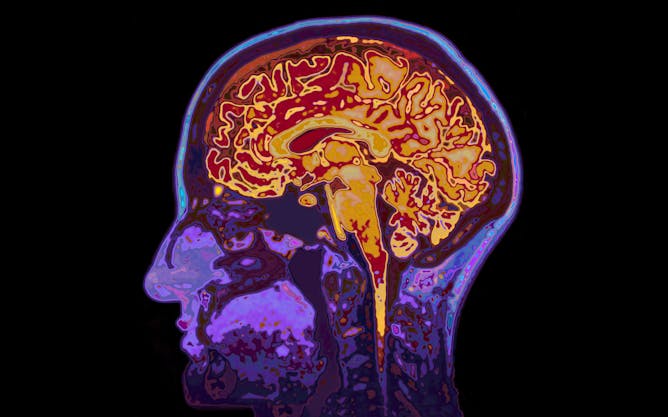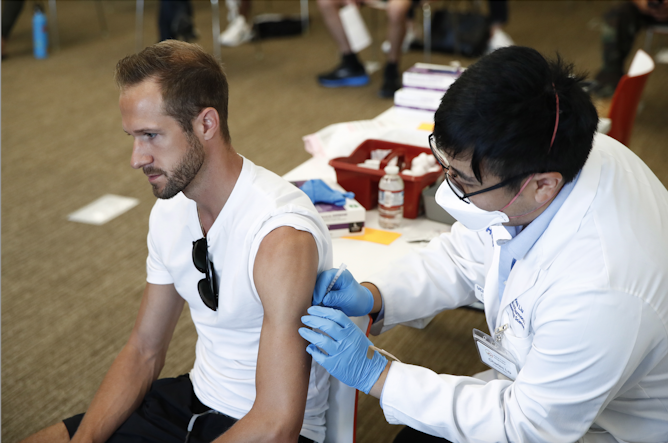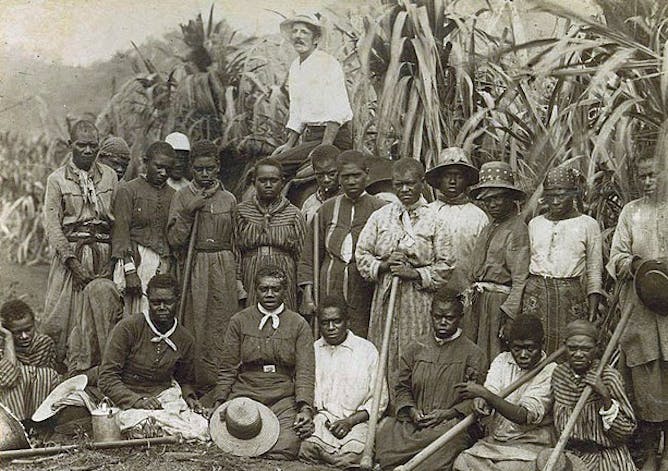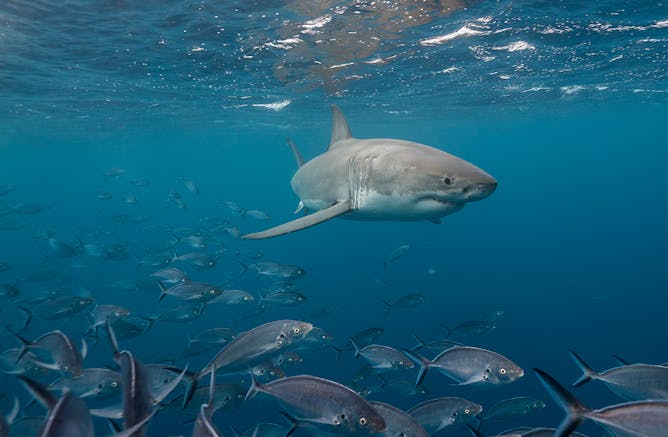|
Just as fingerprints are unique, each human brain has a unique profile of signals between brain regions. These become more individual and specialised, particularly in adolescence.
Adolescence is also a time when most mental disorders emerge – though we still don’t know why some people develop mental illness and others don’t.
Looking for clues as to why, neurobiologist Daniel Hermens and his colleagues at the University of the Sunshine Coast have been tracking adolescent brain development using MRI scans for several years.
They found the extent of the uniqueness of an adolescent’s brain could help predict anxiety and depression symptoms that emerge later. Those with less unique brains had higher levels of distress down the line.
|

|
Fron Jackson-Webb
Deputy Editor and Senior Health Editor
|
|

Daniel Hermens, University of the Sunshine Coast; Jim Lagopoulos, University of the Sunshine Coast; Zach Shan, University of the Sunshine Coast
Our new research reveals that how unique a young person’s brain is could alert us to the likelihood of future psychological distress.
|

Michelle Grattan, University of Canberra
Perhaps not since the marriage equality vote has the passage of a bill in the House of Representatives carried such a combination of substantive and symbolic import as the Albanese government’s climate legislation.
|

C Raina MacIntyre, UNSW Sydney
The third-generation vaccine has fewer potential side effects than second-generation vaccines and can be safely given to people with weakened immune systems.
|

Rachel Wilson, University of Sydney; Jessica Amy Sears, Charles Sturt University; Mihajla Gavin, University of Technology Sydney; Susan McGrath-Champ, University of Sydney
This week, NSW teachers learned they were going to get a “helping hand” preparing lessons from the start of term 4
|

Ian Kemish, The University of Queensland
Women candidates in PNG often lack support and funding, but increasing women’s political participation could lead to more equality and greater democracy
|

Jeff Sparrow, The University of Melbourne
Forced labour in the cane fields of Queensland has had a lasting influence of the Australian nation.
|

Euan Ritchie, Deakin University
A species that is an “apex” predator in one environment won’t necessarily remain so in another.
|
Politics + Society
|
-
Michelle Grattan, University of Canberra
Michelle Grattan speaks with Tom Calma, Chancellor of the University of Canberra, who has been a leading participant in Indigenous affairs for many years, about the Voice to parliament referendum proposal.
-
Daryle Rigney, University of Technology Sydney; Anthea Compton, University of Technology Sydney; Damein Bell, Indigenous Knowledge; Debra Evans, Charles Sturt University; Donna Murray, University of Technology Sydney; Janine Gertz, UNSW Sydney
Australian Governments must embrace Indigenous Nation Building if the Uluru Statement is to lead to effective structural reform and self-determined government for First Nations peoples.
-
Philip Laird, University of Wollongong
Improving the rail link between Australia’s two biggest cities will have many benefits, not least in meeting our carbon-reduction goals
-
Katinka van de Ven, University of New England; Adrian Walsh, University of New England
Just like armour protects soldiers’ bodies, steroids do too. There’s no reason to believe steroid use by the military is unethical, but further studies are needed.
|
|
Health + Medicine
|
-
Clive Aspin, Te Herenga Waka — Victoria University of Wellington
The omission of growing evidence that Māori, and Māori women in particular, have worse health outcomes after HIV infection could derail New Zealand’s elimination plans and exacerbate disparities.
-
Lara Herrero, Griffith University
After taking Paxlovid for COVID and appearing to recover, some people – including US President Joe Biden – continue to test positive. What’s going on?
|
|
Science + Technology
|
-
Timothy Schmidt, UNSW Sydney
What is ‘structured water’ (aka hexagonal water, EZ water, or H3O2)? You might see people advertising it, but it’s not a real thing.
|
|
Education
|
-
Benjamin Wilson, University of Canberra; David Spillman, University of Canberra
First Nations peoples have known for a long time they come from the land. There is potential for others to learn and appreciate their connection to Country as a way to better care for our planet.
-
Aleryk Fricker, Deakin University; Bryan Fricker, Deakin University
First Nations children continue to be overrepresented in incarceration to due to overpolicing. What can schools do to decolonise education and keep First Nations kids in school?
-
Stephen Agnew, University of Canterbury
Research suggests more should be spent on English for Speakers of Other Languages (ESOL) support – earlier in the school system, before it’s too late.
|
|
Arts + Culture
|
-
Sarah Thomasson, Te Herenga Waka — Victoria University of Wellington
The survival of the Edinburgh International Festival, and others like it around the world, is testament to ingenuity of organisers and performers. But there’s no substitute for the live experience.
|
|
Books + Ideas
|
-
Cameron Murray, University of Sydney; Paul Frijters, London School of Economics and Political Science
If you were a powerful politician, there is a good chance you would make decisions that favour your mates.
|
|
Business + Economy
|
-
Lucinda O'Brien, The University of Melbourne; Ian Ramsay, The University of Melbourne; Paul Ali, The University of Melbourne
Payday lender Cigno has exposed the limitations of ASIC powers intended to protect consumers from harm.
-
Tony Wood, Grattan Institute
Even with enough supply, local gas prices have been skyrocketing. The ACCC has squibbed on possible reforms such as a windfall profits tax.
|
|
| |
|
|
|
Faculty of Society & Design, Bond University
Gold Coast QLD, Australia
•
PhD Scholarship
|

|
|
State Library of Queensland
Brisbane QLD, Australia
•
Casual
|

|
|
|
|
| |
| |

|
| |
| |
| |
Featured Events, Courses & Podcasts
|
View all
|
|
7 October 2021 - 7 October 2026
•
|

|
25 November 2021 - 25 November 2024
•
|

|
16 August 2022
•
Kensington
|

|
23 August 2022
•
Kensington
|

|
|
|
|
| |
| |
| |
| |
| |
|
|